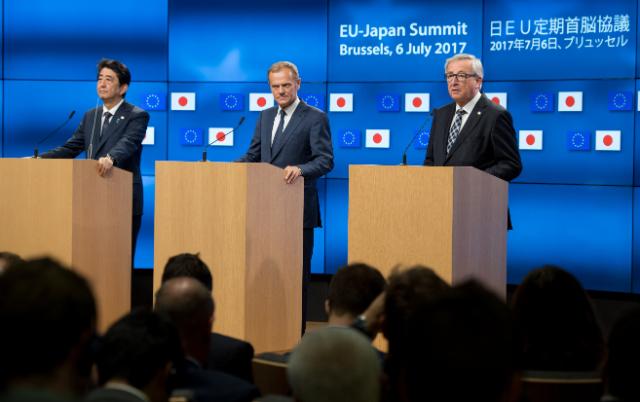Blog Archive

Obligations to accommodate irregular migrants: will the local bed-bath-bread facilities survive?
By Paul Minderhoud
1. Introduction
Thousands of irregular migrants reside in the Netherlands. This number includes migrants who have exhausted all legal remedies and whose claim to stay is rejected and therefore must leave the Netherlands on their own initiative. Since 2019, those who do not immediately do so can – for a certain period – be accommodated in one of the five recently established National Aliens Facility locations (Landelijke Vreemdelingenvoorzieningen, LVV) in Amsterdam, Rotterdam, Utrecht, Eindhoven and Groningen, supervised by the Repatriation & Departure Service of the Ministry of Justice and Security in cooperation with municipalities. These LVVs are an addition to the so-called central freedom-limiting location (Vrijheidsbeperkende Locatie, VBL), based in Ter Apel and are currently still in a pilot stage. It is the intention to extend the number of LVVs to eight locations. Migrants who are accommodated in these LVVs will have to cooperate in finding a lasting solution to their situation, which in most cases means they have to return. The existing local bed-bath-bread facilities in these municipalities and, in time, in all municipalities, must be closed. But is this closure possible in light of international obligations? Do the plans really result in ending this form of municipal facilities?
Read more
Google versus uitgevers – You ain’t seen nothing yet
By Stefan Kulk
Het persuitgeversrecht behoort samen met het ‘uploadfilter’ tot de meest controversiële onderwerpen in de auteursrechtrichtlijn die dit voorjaar werd aangenomen. Het persuitgeversrecht is een nieuw naburig recht voor uitgevers van perspublicaties dat specifiek betrekking heeft op het ‘onlinegebruik van hun perspublicaties door aanbieders van diensten van de informatiemaatschappij’. Zonder een eigen naburig recht is het voor persuitgevers een hele klus om aan te tonen dat zij beschikken over de auteursrechten op de vele online artikelen die zij publiceren. Uitgevers kunnen bovendien niet altijd over auteursrechten op artikelen beschikken als zij werken met freelancejournalisten. Dat alles maakt het moeilijk voor uitgevers om hun investeringen terug te verdienen en hun maatschappelijke functie als facilitators van een vrije en pluralistische pers te vervullen. Daarvoor was dus een nieuw zelfstandig exclusief recht voor persuitgevers nodig.
Read more
Podcasten in de Wetenschap: Een Aantal Ervaringen na Zes Maanden
By Willem Janssen
Laat ik maar gelijk met de deur in huis vallen. Veel wetenschappelijke kennis komt niet terecht op de plek waar het de meeste impact heeft. Mening wetenschapper zal dit herkennen vanuit zijn of haar eigen vakgebied. Het is in ieder geval een waarheid als een koe voor de mijne; het Europees en Nederlands aanbestedingsrecht. Veel ontwikkelingen en maatschappelijke discussies zouden echter wel baat hebben van kennis uit de wetenschap.
Duidelijk is ook dat het overbruggen van het gat tussen de universiteit en de praktijk een uitdaging blijft. Net als veel van mijn collega’s blog ik daarom graag en schrijf ik een maandelijkse column. Daarnaast wakker ik op Twitter en LinkedIn discussies aan over maatschappelijk thema’s, die relateren aan mijn onderzoek. Ik beleef daar veel plezier aan en haal er motivatie voor toekomstige onderzoeksprojecten uit. En soms komen er zelfs nieuwe inzichten uit voort. Ook voor mijn onderzoek is het dus waardevol.
Read more
Implementing the right to erasure: the judgment of the EU Court of Justice in Google v CNIL
By Cedric Ryngaert and Mistale Taylor
On 24 September 2019, the Court of Justice of the EU (CJEU) rendered its judgment in Google v CNIL on the geographic scope of implementation of the right to erasure (also known as the right to be forgotten or the right to be de-referenced). The judgment has received substantial media coverage (see, e.g., here and here), but press reports have paid little attention to its legal nuances. This blogpost provides such legal analysis, and reflects on the jurisdictional aspects of the judgment, in particular on the territorial reach of decisions to de-reference search results. The post argues that the CJEU deserves credit for displaying jurisdictional reasonableness, and on that basis rejecting an obligation for search operators to de-reference search results on all versions of their search engine. However, the CJEU pays conspicuous deference to EU Member State authorities, and gives little specific guidance as to how exactly these authorities are to determine the scope of implementation of the right to erasure.
Read more
The European Citizens’ Initiative – Direct Democracy as a parallel to parliamentary democracy?
By Hanneke van Eijken and Simona de Heer
EU citizens have a political right to submit an initiative for new legislation to the European Commission. This is called the European citizens’ initiative, enshrined in Article 11 TEU, and further regulated in Regulation 211/2011. This form of direct, participatory democracy could be seen as a tool to foster citizen participation and to bring the EU closer to its citizens. It was introduced in the Lisbon Treaty as a response to even out the EU’s democratic deficit. Recent citizens’ initiatives cover issues as climate change, education for children with disabilities and evaluation mechanisms to see whether Member States adhere to European values.
From a regulatory perspective it is interesting to see whether regulation of direct democracy through the introduction of the EU citizens’ initiative is an effective tool for strengthening democracy and where its pitfalls lie. Since its introduction the citizens’ initiative has been subject to criticism as to its effectiveness. Currently, the European citizens’ initiative is being reformed. This raises questions about the effectiveness of the reformed citizens’ initiative and how it relates to parliamentary democracy. First, the weaknesses of the current citizens’ initiative will be discussed. Secondly, the reform and its achievements will be elaborated on. Finally, the relationship between parliamentary democracy and direct democracy will be examined.
Read more
The Reform of the Common European Asylum System: Between Recast and New Regulation
By Salvatore Nicolosi
Twenty years after the European Council of Tampere that in 1999 set out the political roadmap to establish a Common European Asylum System (CEAS), the European Union and its Member States still struggle to design a solid and future-proof system. The migratory pressure on the EU increases the need for effective responses. With more than 1 million people reaching Europe in 2015 and more than 18,000 drowning at sea in the period between 2014 and 2019, a solid asylum system becomes all the more urgent.
The reform of the CEAS certainly constitutes a relevant context to reflect on the dynamics of regulation in a particular sensitive area of European integration. Nonetheless, a closer look at the ongoing reform illustrates how this lays behind the actual way forward to the realisation of the goals established in Tampere twenty years ago.
Read more
First Impressions of Google AdSense Decision
By Viktorija Morozovaite
The Google AdSense decision has come out on the 20th of March, 2019. With imposition of €1.49 billion fine it marked an end to the third European Commission’s investigation into tech giant’s practices, each resulting in spectacular penalties (together rounding up to €8.2 billion – a sum equivalent to Benelux countries’ annual contribution to the EU budget) and advancing the debate between competition practitioners and academics worldwide. Admittedly, the outcome did not come as a surprise to many – over the past decade, European Commission seem to have become the nemesis of giant tech companies with investigations into practices of Google, Apple, Facebook and Amazon. While the full decision is not published yet and it is difficult to comment on its merits, this blog post aims at distilling some of the ongoing issues, placing the decision in the broader context.
Read more
Brexit and the ways forward for the UK and EU agencies
By Lisette Mustert, Béla Strauss, Miroslava Scholten and Matthew Wood
Brexit raises the question of which way forward for the UK in its relationship with the EU and with EU agencies. For future research and legislative design, this in turn raises a more fundamental question of when which type of agreement between a third country and EU agencies is appropriate, in light of factors such as salience and the interests on both sides. Having analysed all EU agencies’ founding acts, we show in this post that there are three types of formal relationships that exist at this moment between EU agencies and other countries: full membership, observership and cooperation. We argue that the type of this relationship would vary for the UK depending on the score of ‘Brexit salience’, a concept that we introduce. The higher the ‘Brexit salience’ rating is, the more formal the arrangement – full membership or observer – the UK (and the EU) would need to have with an EU agency. According to our scores, this would concern the European Medicines Agency (EMA) and the European Aviation Safety Agency (EASA). In the case of EU agencies that score low on our salience rating, the UK (and the EU) would want to opt for a relatively limited form of cooperation with EU agencies. This would be the case for Cepol, EIGE, ACER, Frontex and CPVO. Surprisingly, the seemingly highly salient agency in the public debate – the European Border and Coast Guard Agency (also known as Frontex) – scores the joint lowest rating. How is this possible, when for the UK immigration is so important during the Brexit vote? It is because, first, our Brexit salience measures do not focus on what is salient in general for the British or European public. Rather, we are concerned with practical matters of policy implementation. As a matter of policy, Frontex has a clear and well-resourced opposite agency – the UK Border Agency – and its operation does not affect a discrete and well-defined policy area.
Read more
Europa versus Trump: hoe de Europese economische soevereiniteit te beschermen tegen Amerikaanse sancties
By Cedric Ryngaert
Premier Mark Rutte hield op 13 februari 2019 zijn veelgeprezen Churchill-lezing in Zürich. In commentaren ging veel aandacht uit naar het door hem voorgestane musculaire Europese buitenlands en veiligheidsbeleid, in het bijzonder naar zijn voorstel om Europese sanctiebesluiten met gekwalificeerde meerderheid mogelijk te maken. Premier Rutte lijkt daarbij ontzag te hebben voor hoe de Amerikanen het aanpakken, wanneer hij zich afvraagt wat we kunnen leren van de veel grotere impact van Amerikaanse sancties in vergelijking met de Europese. Net zoals de VS zou de EU volgens premier Rutte meer bereidheid moeten tonen om ‘marktmacht te koppelen aan politieke doelstellingen en economische belangen’. Het is echter niet de bedoeling dat Europa hiermee ‘de op regels gebaseerde multilaterale wereldorde’ met voeten gaat treden. Net omdat de VS dat met zijn ‘extraterritoriale’ en internationaal onrechtmatige sanctiebeleid weldoet, dient Europa de nodige maatregelen te nemen om het Europese bedrijfsleven en de Europese economische soevereiniteit tegen de Amerikaanse sancties te beschermen.
Read more
EU-Japan Economic Partnership Agreement: Data Protection in the Era of Digital Trade and Economy
By Machiko Kanetake and Sybe de Vries

On 12 December 2018, the European Parliament approved the EU-Japan Economic Partnership Agreement (EPA) which the parties have been negotiating since April 2013. The Agreement, sometimes called as the “cars-for-cheese” deal in a symbolic sense, aims to vitalize economies which represent approximately 30% of global gross domestic product. The Commission presented the final text to the Council on 18 April 2018, which authorized, on 6 July, the signing of the deal. The parties have signed the agreement on 17 July, and, on 8 December 2018, the National Diet of Japan approved the agreement. In light of the Court of Justice’s Opinion 2/15 on the EU-Singapore Free Trade Agreement, the Commission assumes that the EU-Japan EPA does not require ratification by individual EU member states since the agreement is within the EU’s exclusive competence. Investment protection standards and investment protection dispute resolution, which fall under shared competences, have been subject to separate negotiations. The EPA, which is expected to enter into force on 1 February 2019, is arguably the biggest trade-related achievement of the current Commission, which ends its mandate in 2019.
Read more
